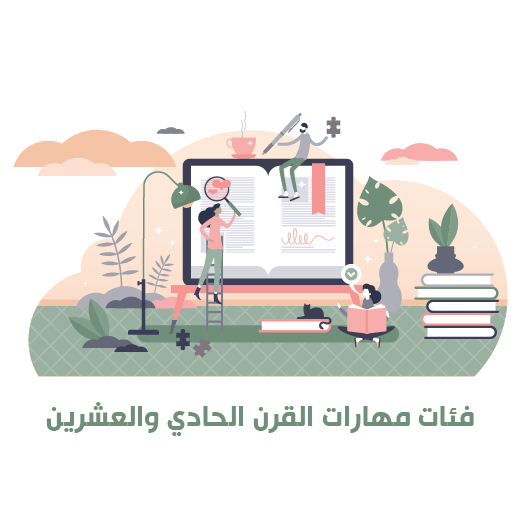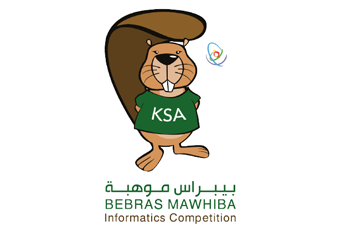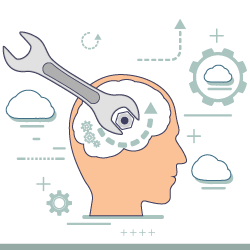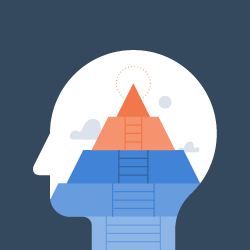21st Century Skills Categories

Dr. Adnan Al-Qadi - Assistant Professor of Gifted Education
Creativity
21
First: Learning and creativity skills :
In the past, education focused primarily on learning the important content in each subject, then assessing the individual's knowledge content through short tests at the end of a lesson.
- Critical thinking and problem solving: The ability to analyze logically, think independently, deal with information responsibly, and develop, evaluate, and achieve ability without bias. It includes sub-skills, which are: using systematic thinking; thinking effectively; making judgments and decisions; and solving problems.
- Communication and collaboration: The ability to interact, convey opinions efficiently, communicate effectively, negotiate, discuss, persuade, and build on others’ ideas, using communication and interaction methods to ensure results are achieved. It includes sub-skills: communicating clearly; and cooperating with others.
- Innovation and creativity: The ability to deviate from the norm in facing life situations, by invoking new solutions, using available resources in unfamiliar ways, and linking different information, which contributes to solving the dilemmas and problems that one faces daily. It includes sub-skills, which are: thinking creatively (brainstorming); working creatively with others; implementing innovations.
Second: Digital Culture Skills
Our lives today are constantly dealing with technology and various social media, and therefore individuals must be trained on their skills in a deliberate and systematic manner.
- Information literacy: The ability to demonstrate a functional set of thinking skills related to information and methods of obtaining, collecting, classifying, analyzing and evaluating it effectively, which facilitates decision-making regarding it. It includes sub-skills, which are: accessing and evaluating information; using and managing information; and reviewing the ethical aspects of using technology.
- Media culture: The ability to use multiple and diverse media professionally and effectively to serve oneself and one’s community, in a sound and positive manner without being affected by their negatives or negative messages and unethical practices that some may direct. It includes sub-skills, which are: Analyze media; and create media products.
- Technology and communication culture: The ability to use technology and its tools effectively; to create or access information, manage it, refute it, criticize it, and disseminate it, in addition to their full knowledge of the impact of technological content on the individual and society. It includes sub-skills, which are: increasing computing capacity in data analysis; remote sensing; modeling; and considering ethical aspects when using technology.
Third: Career and life skills
Our lives and work environments today require more than just knowledge and thinking skills, they require the ability to succeed in complex life and work environments, and it is defined here as developing the individual’s skill to become self-directed and an independent learner.
- Flexibility and Adaptability: The ability to organize and evaluate life and work interactions, acquire life and work skills, navigate life and work in complex environments, compete globally and give strict attention to career development. It includes sub-skills: adapting to change; flexibility; and managing time and goals.
- Initiative and self-direction: The ability to manage oneself productively, strive to achieve goals with strong determination and high motivation, deal with failure and frustration positively, analyze risks with a clear vision, take the initiative in raising and dealing with emerging problems, and make constructive suggestions. It includes sub-skills, which are: monitoring and understanding the individual and learning needs; going beyond mastering basic skills to discover and gain experience; using time efficiently and managing workload; working independently, self-learning; and managing time and goals.
- Social and cross-cultural skills: interacting effectively with others in an atmosphere of respect, and taking advantage of social and cultural differences to build new ideas, increase innovation, and work with quality and effectiveness. It includes sub-skills, which are: engaging in work with individuals of different ages, backgrounds, and physical abilities; interacting effectively with others; working effectively in diverse teams, working with people from different cultures, and taking advantage of social and cultural differences to build new ideas.
- Productivity and Accountability: The ability to use influence, acquire skills to work with others for a common goal, and benefit from the strengths of others. It includes sub-skills, which are: setting goals, priorities, and time management; project management; achieving results; managing time and projects effectively; and taking responsibility for issuing results.
- Leadership and Responsibility: The ability to take the lead, unify opinions, inspire and motivate others, make sound decisions based on evidence, identify and study options, and choose the appropriate ones, taking into account personal and public interests. It includes sub-skills, which are: directing and leading others; and responsibility with others.
- Citizenship: The ability to direct one’s knowledge, behavior, and values responsibly, in a way that enhances intellectual convergence between the various components of society, raises awareness of global challenges, increases one’s contributions to building and developing one’s country in a fundamental way, establishes environmental sustainability practices, social justice, contributes to forming positive attitudes toward society’s problems and challenges, and accepts others in a way that increases local cultural convergence.
- Cooperation and teamwork: The ability to collaborate with other individuals and organize work among themselves in an integrated manner without conflict or repetition, taking into account the interests of all and fairness in distributing work and tasks, and managing this with a clear and precise methodology agreed upon before beginning to implement and complete it.
It includes sub-skills, which are:
The art of teamwork and its management; distributing and delegating tasks; cooperation among individuals on a logical basis in which efforts are integrated and mutually supportive .
Did you benefit from the information provided on this page?
visitors liked this page



